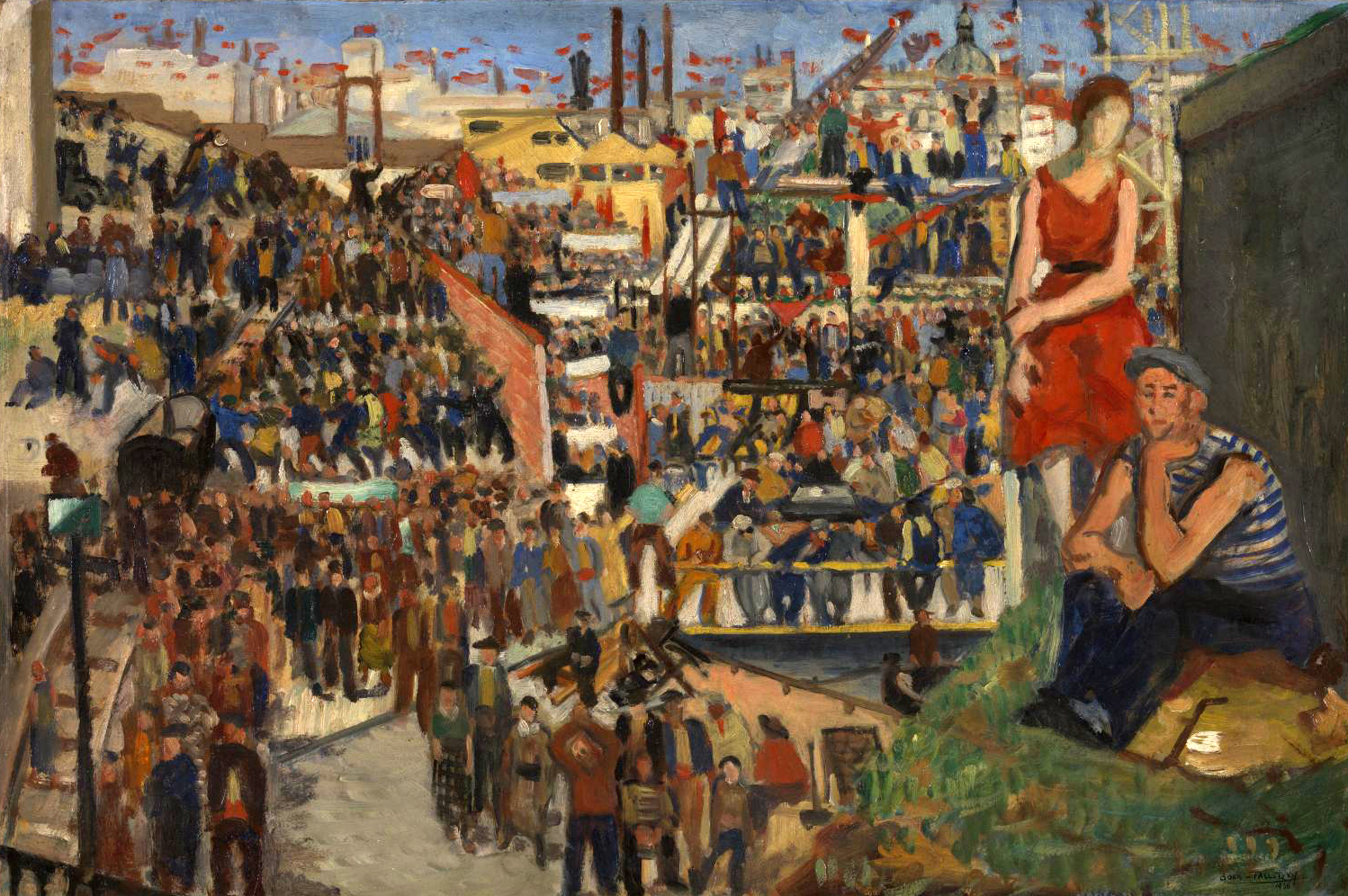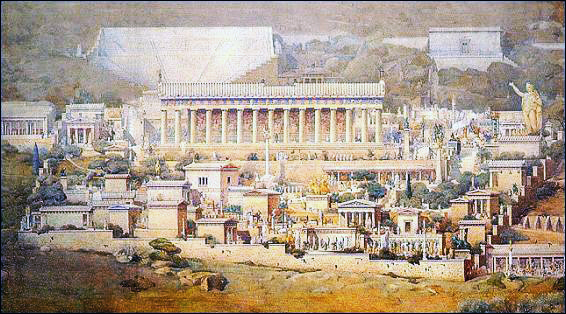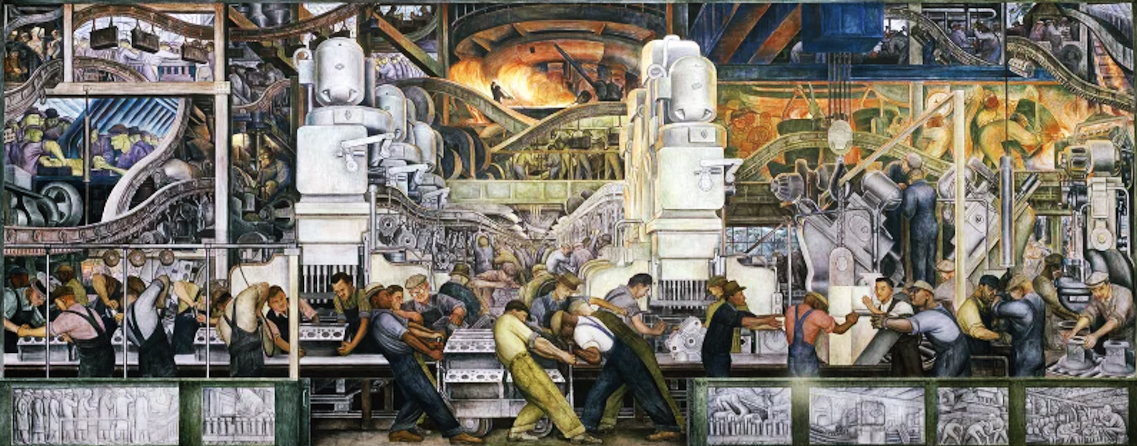The example of Japan in the second half of the 19th century, suddenly opening itself without restraint to the trade and technology of the mechanised world, under the threat of Commodore Perry’s guns; moreover, taking up the challenge of all those peoples for whom economic success is everything, and accepting to compete with them on their ground, while striving to lose nothing of its tradition, seems to be the most resounding affirmative answer to the two questions posed above. Gandhi seems to proclaim that, if a certain (sometimes very advanced) degree of mechanisation is inevitable today for a people that refuses to become, or to remain, the prey of a conqueror, or the weakened, humiliated, ruined loser of a war, it doesn’t follow that it must automatically forsake what makes it itself; consider its past as a ‘state of infancy’ to be left behind and change its gods and its scale of values.
No doubt a factory is a factory, and an office, and a supermarket a place of all too material utility to be attractive in any climate, whatsoever the immense industrial agglomerations of Osaka, Kobe or Tokyo should disappoint the tourist in search of local colour and even more so the artist in search of beauty. Pre-1868 Japan, which had been closed to all foreign contact for almost two and a half centuries and was living in a prolonged Middle Ages, was undoubtedly more fascinating to see. But this is not an observation limited to one country.
The whole earth, including Europe, was more beautiful to contemplate in the Middle Ages and Antiquity than after the advent of big industry. What is remarkable and admirable is that, despite the ugliness inherent in all large-scale mechanisation, so much beauty has remained in the Empire of the Rising Sun, and above all that this beauty is so obviously linked to the preservation of Tradition in the particular expression that the people and their history and geographical environment have given it: a living and active Tradition, capable, as in the past, of impregnating the entire life of an elite, and even of creating an atmosphere in which the entire country, including factories, is bathed.
______ 卐 ______
 Editor’s Note: Here and in the following passages Savitri idealises modern Japan. Just look at the island today, or China! Regarding what she wrote above, remember what Kenneth Clark said in the last program of Civilisation: ‘One sees why heroic materialism is still linked with an uneasy conscience. The first large iron foundries like the Carron Works or Coalbrookdale, date from about 1780. The only people who saw through industrialism in those early days were the poets. Blake, as everybody knows, thought that mills were the work of Satan. ‘Oh Satan, my youngest born… thy work is Eternal death with Mills and Ovens and Cauldrons’ (the above image appeared in the Civilisation TV series). Savitri continues:
Editor’s Note: Here and in the following passages Savitri idealises modern Japan. Just look at the island today, or China! Regarding what she wrote above, remember what Kenneth Clark said in the last program of Civilisation: ‘One sees why heroic materialism is still linked with an uneasy conscience. The first large iron foundries like the Carron Works or Coalbrookdale, date from about 1780. The only people who saw through industrialism in those early days were the poets. Blake, as everybody knows, thought that mills were the work of Satan. ‘Oh Satan, my youngest born… thy work is Eternal death with Mills and Ovens and Cauldrons’ (the above image appeared in the Civilisation TV series). Savitri continues:
______ 卐 ______
What is admirable is that in Japan there are still masters like Kenzo Awa, who taught the German Herrigel the sacred art of archery according to the rules and spirit of Zen Buddhism, and a whole legion of disciples thirsting for true knowledge: that knowledge which leads the one who acquires it to ‘be’ more. What is admirable is the survival, even in politics, of this Shintoism whose origin is lost in prehistory and to which the great Japanese thinkers of the eighteenth century, Moturi and Hirata, have definitively given that character of sacred nationalism: a Far Eastern version of our cult of Blood and Soil which Japan has kept to this day.
A few days before December 7, 1941, our Japanese allies most naturally sent an official delegation to the Temple of Isé, an embassy of the Imperial Government to the Gods of the Empire and the ancestors of the Emperor-Gods: ‘Is it agreeable to you that we declare war on the United States of America?’ And it was only after the Gods (or their priests) responded favourably that war was declared. Four years later, after the bombing of Hiroshima, it was again with the permission of the Gods that the surrender was decided, as was the opening of Japan to foreign trade and modern technology in 1868, as the supreme measure of salvation for the Empire. What is admirable about all this is the persistence in Japan of the spirit of bushido in the middle of the 20th century; it is the cult of national honour in its highest expression, and the total contempt for death, both among the famous Kamikaze (‘living-bomb’ pilots of the Second World War) and among the twenty-five thousand Japanese on the island of Saipan, in the middle of the Pacific, all of whom killed each other when the Americans arrived; it is the resistance, unshakeable in its smiling politeness, to the occupation of the Yankees and to their political-philosophical proselytism: the reinstatement, in the school curriculum, immediately after the signing of the peace treaty, of the Kojiki or history of the National Gods, banned under the Democracy Crusaders’ regime; it is the construction, at Gamagori, of a temple to Tojo and the other Japanese hanged by the Americans as ‘war criminals’: a temple where school children will bow and burn a stick of incense before the image of the martyrs and defy any ‘moral conquest’ of the People of the Sun, after visiting the (only partly reconstructed) site of Hiroshima.
It all fits together: this teaching, as alive as ever, of traditional esotericism in its national forms, and this refusal of a whole people, penetrated by the radiance of its elite without even realising it, to renounce its soul under the sway of technology and in response to the lies of the men who have imposed it on them. It may be that the Japanese worker, who works at a discount in large companies and helps to flood the world with manufactured goods—tangible products of his country’s industrial expansion, whose prices defy all competition—has a material life almost as hard as that of a Russian proletarian in a kholkose. But he knows that he is working for the glory of the Empire, to which he belongs. And this Empire is, contrary to the Marxist state, the guardian of a Tradition that goes far beyond it. It is the link between the common man and the eternal. (For the belief in the divinity of the Emperor and the Nipponese land, which itself sprang from the body of a Goddess,[1] is not dead in Japan, despite its noisy official denial, repeated over and over again to give the foreigner the conviction of a lasting ‘progress’ in the democratic sense.)
On the other hand, the dream of a world dictatorship of the proletariat—or even that of the Slavic (or ‘yellow’) world, unified under such a dictatorship with a view to ever-increasing production and the comfort of an ever-growing number of individuals—is, if it constitutes an ideal, in the final analysis only a limited ideal. It doesn’t go beyond the material plane or man. Even the simplest of people can only ever be satisfied with it by becoming robots.
__________
[1] lzana-mi, wife of Izana-gi. The Emperor is descended from the Sun Goddess: Amaterasu-ohomi-kami.









